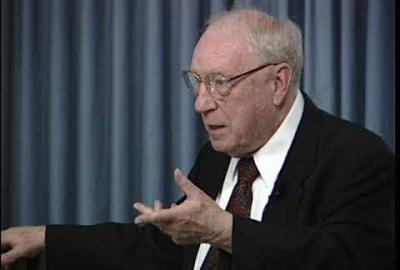Do We Wake Up After We Die? by John Algeo

ATTENTION has been focused recently on the question of whether, according to the Theosophical tradition, we are conscious in the after-death state. Adam Warcup and E. Lester Smith, for example, have addressed several aspects of the subject in the journal of the English Section. If the question is reduced to its most basic form, there are two extreme views on it.
One view is that when we die we enter a state of unconsciousness that endures through the kämaloka (or astral plane) portion of the post-mortem experience and ends only when we enter the state of devachan, in which we create a private, dreamlike world of consolation. In this view, which is based chiefly on a reading of The Mahatma Letters, there is no full consciousness at any time after death and no interaction with other beings. The only exceptions are abnormal and largely undesirable ones.
The other view is that dying is changing the focus of our consciousness and that the post-mortem state is simply a continuation of living consciousness, although the post-mortem environment is governed by different natural laws from those of the physical world. This viewis associated parti/sites/default/files/articles/Do We Wake Up After We Die? - John Algeo.pdfcularly with the investigations of clairvoyants like C.W. Leadbeater. According to it, although periods of unconsciousness may intervene, the post-mortem state is just as conscious as the living state, and on the other side of death the norm is a continued interaction with other beings.
To read the full article, click on the link <here>

 This Theosophical Encyclopedia contains all the articles of the printed
This Theosophical Encyclopedia contains all the articles of the printed